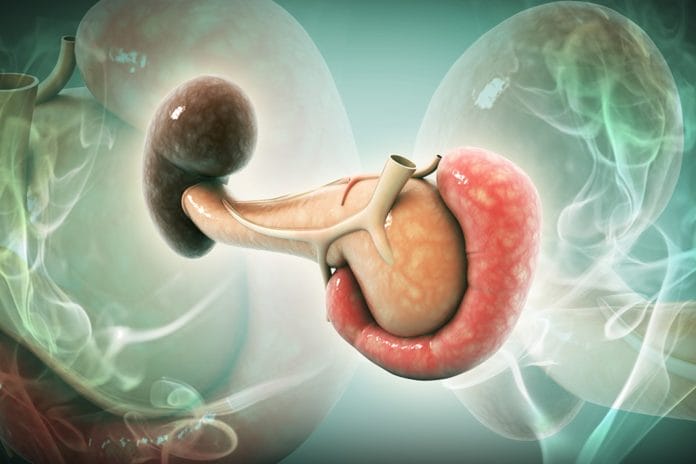Good oral health might help prevent pancreatic cancer, according to an academic study published in the British Journal of Cancer. The study, which was led by Professor Timo Sorsa from the University of Helsinki and Karolinska Institute, showed certain types of bacteria associated with periodontitis might play a role in patients developing cancer later on. Professor Sorsa also collaborated with Docent Jari Haukka from the University of Helsinki, Professor Caj Haglund and Docent Jaana Hagström from the University of Helsinki and the Hospital District of Helsinki and Uusimaa.
A Closer Look at Pancreatic Cancer
According to the American Cancer Society, around 3% of people with cancer are diagnosed with pancreatic cancer. Patients with pancreatic cancer also account for 7% of all patients who die from cancer. Statistics from the American Cancer Society reveal that 55,440 total patients were diagnosed with pancreatic cancer in 2018. They estimate that around 44,330 patients will die from the disease this year.
Patients with pancreatic cancer may experience a wide range of symptoms as it spreads throughout their body. The Pancreatic Cancer Action states people with the disease may experience some of the following symptoms: extreme weight loss, jaundice, depression, diabetes, indigestion, loss of appetite, abdominal pain, back pain, nausea, and vomiting. About 1 in 63 men are at risk of being diagnosed with pancreatic cancer. Meanwhile, women have a lifetime risk of about 1 in 65.
Previous Studies Based on the Link Between Periodontitis and Pancreatic Cancer
The Finnish and Swedish scientists decided to utilize several previous studies to serve as a basis for their research. One of the studies was published in the International Journal of Cancer with almost 70,000 Finnish people that spanned a ten year period. The older study focused on the link between periodontitis and the mortality rate of pancreatic cancer. They also used previous research which examined how enzymes can weaken the immune system and activate certain cancer cells to invade healthy tissue in the body.
The British Journal of Cancer Study
The team of researchers wanted to investigate how bacteria related to periodontitis can eventually contribute to patients developing different types of cancer. They also wanted to research the link between oral disease and cancer mortality on a larger scale.
The scientists looked at the original cohort study of Finnish adults after the 10‐year follow‐up. They took into account the patient’s sex, age, oral health, diabetes and other contributing factors when analyzing the study’s data. A total of 797 people died from cancer after the decade-long period. The scientists discovered patients with periodontitis had an increased risk of developing pancreatic cancer (RR 1.69, 95% CI 1.04–2.76) and dying from the disease. The results demonstrated periodontitis can influence the process of carcinogenesis on a molecular level due to Treponema denticola, a common bacteria associated with periodontitis, and the enzyme Td-CTLP proteinase. The researchers believe the results showed that periodontitis could help spread oral bacteria to other parts of the patient’s body due to its viral attributes.
The Conclusion
The data gathered from this study demonstrates how dental hygienists must remain vigilant when educating patients on home care and oral health. Thanks to studies like this, patients can also understand how good oral health can play an important part in cancer prevention. Professor Sorsa believes prevention and early diagnosis of periodontitis are very important because it can help patients from developing pancreatic cancer and other types of illnesses. Researchers at the Karolinska Institute and the University of Helsinki plan to continue researching the link between oral bacteria and cancer.











